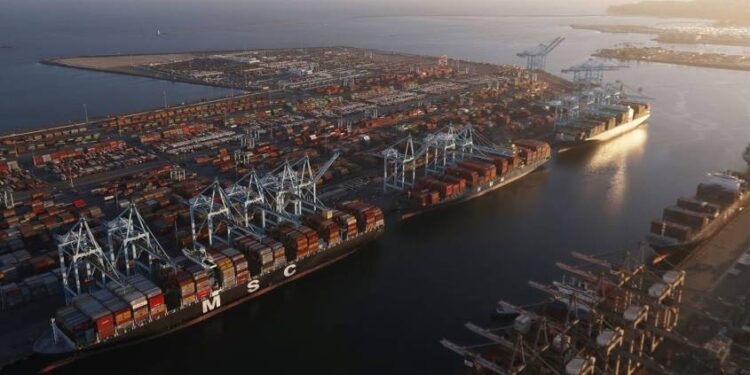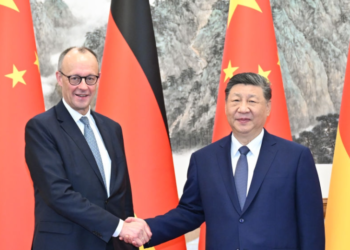The federal cabinet on Friday authorized 12 large-scale development projects for Rs 600 billion despite a limited economic outlook and the withdrawal of energy subsidies for the general public.
These projects, which mostly pertain to the energy and communications sectors, were authorized by the Executive Committee of the National Economic Council (Ecnec) at its meeting, which was presided over by Finance Minister Ishaq Dar.
Ahsan Iqbal, the minister of planning, Naveed Qamar, the minister of commerce; Taimur Jhagra, the minister of finance for Khyber Pakhtunkhwa, and Mohsin Leghari, the minister of finance for Punjab, all attended the meeting.
The project for a 500kV Sialkot Substation received Ecnec approval for Rs31.820bn. This project’s primary goals are to increase the voltage profile and satisfy the increased load demand in the Gujranwala Electric Power Supply Company’s service regions.
The next transmission project, which would cost Rs 15.112 billion, will upgrade and install 500 kV and 220 kV transformers at the current grid stations in order to alleviate NTDC system bottlenecks. The Asian Development Bank is providing funding for the project.
Another project was approved at a cost of Rs17.106bn on the upgradation of the existing 220kV Vehari substation to 500kV. The project is funded by French Development Agency (AFD) to be completed in 41 months.
The council authorized the Chasma Right Bank Canal Project for a total cost of Rs. 189.606 billion, with the federal government contributing 65 percent of the financing and the government of KP 35 percent. The proposed canal is an offshoot of the Chasma Hydropower Station’s Head Race channel, which is located on the right bank of the Chasma Barrage.
The Naulong Multipurpose Dam project received Ecnec approval for $43.797 billion. The project would be an earth-filled dam with a catchment area of 7,485 square kilometers that would be 2,996 feet long and 186 feet high in the Balochistan region of Jhal Magsi. The initiative will reduce flooding, improve the region’s socioeconomic situation, and eradicate poverty
The Higher Education Commission’s initiative, the Allama Muhammad Iqbal Scholarship for Afghan National Students, which would fund 4,500 scholarships, received approval from the committee for Rs 12.702 billion.
The dualization and rehabilitation of the Karachi-Quetta-Chaman Road (N-25), which runs from Karachi to Kararo and Wadh to Khuzdar, were agreed upon during the conference and are expected to be finished in 36 months. The dualization of the 84-kilometer Karao-Wadh portion and the 104-kilometer Kuchlak-Chaman stretch of the national highway, which is scheduled to be finished in 18 months, was also authorized.
The improvement and widening of the Chitral-Booni-Mastuj-Shandur Road (153 km), which would cost Rs 17.783 billion and take 36 months to complete, was authorized by Ecnec. The redesigned Lowari Road Tunnel & Access Roads Project, with a total rationalized cost of Rs 27.960 billion, was also authorized by the ECNEC. The National Highway N-45 passes via the Lowari tunnel.
The project, which links the regions of Dir and Chitral, is situated between the cities of Dir and Drosh. The project includes two tunnels with lengths of 8.5 km and 1.9 km, four bridges in a network of tunnels, two portals, and connecting access roads.
The Locust Emergency and Food Security Project, with a revised cost of Rs 26.014 billion, was also authorized during the conference. The effort, which involves strengthening Pakistan’s capacity to defend against future locust and other invasive pest invasions, will be carried out across the whole nation with an initial focus on flood-affected areas.
The Punjab Resilient and Inclusive Agriculture Transformation project, which would cost a total of Rs 74.757 billion, was authorized by ECNEC. In five years, the project will be implemented across the entire province of Punjab for community-driven improvements in water conveyance and application, promotion of climate-smart high-value production, regenerative agriculture, crop diversification, agriculture value addition, and inclusive access to markets.
In light of stakeholder concerns, the conference also accepted the directions to conduct techno-economic feasibility studies.


















